Would dissolving the CDL in 2024 fix Call of Duty esports?
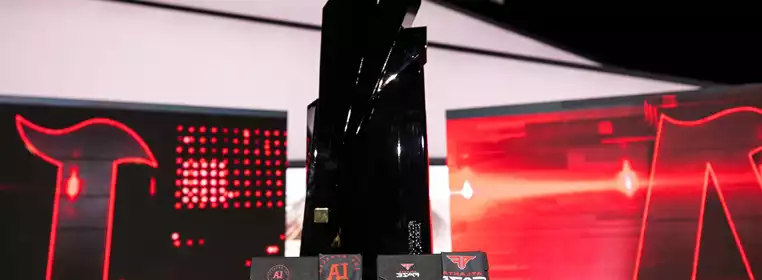
After four seasons, the franchised system deployed in the Call of Duty League is on its last legs.
Viewership is down again after the controversial new deal with YouTube, and the once-lucrative elite division of CoD esports has become a shadow of what was promised.
For players, a lack of streamlined synergy between the core game and Warzone's influence is still posing a threat in the fourth year of competition. For fans, platform swaps, discoverability, and a lack of global diversity have hindered the experience and online dramas have only been heightened as a result of continuous bad news. For orgs, massive fees, deferrals, esports winter, and reneged promises have led to unrest and turmoil.
But what happens if the Call of Duty League was to be dissolved? Is there a way back to pool play? Or have we gotten to a point where the only way to survive is to plug the holes in this sinking ship and float into the abyss?
Could the Call of Duty League follow in the footsteps of the Overwatch League?
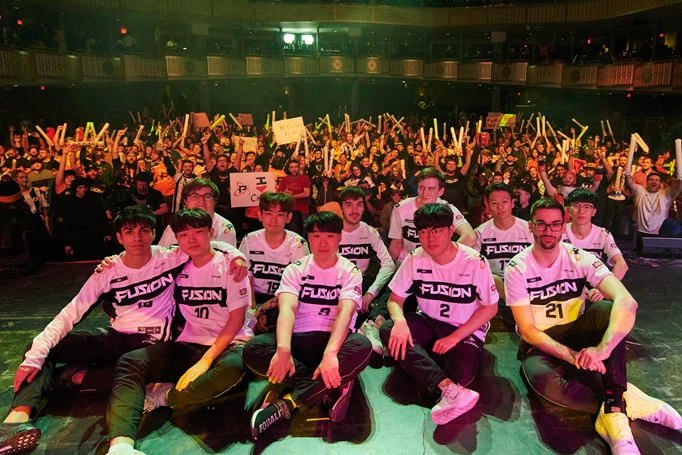
 Click to enlarge
Click to enlargeBefore we take a look at Call of Duty, Activision's franchised league Overwatch has now officially been dissolved as teams were able to negotiate a deal to waive outstanding fees due to the OWL and begin transitioning to a new direction on esports.
After six seasons split into two regions, the OWL has now ceased to exist, after parties were given the chance to vote on its continuation, where the anonymous majority decision favoured a new chapter.
Overwatch Esports has yet to announce how life after the OWL will work, including who will be running it, how it will be formatted, the possible integration of the amateur and semi-professional T2 scenes, and when the calendar will kick off. All that's known so far is that the OWL is dead.
So where does that leave the CDL?
Taking the Overwatch League into consideration, many parent organisations owned franchised teams in both Activision leagues. In fact, over half (7/12) of the organisations in the CDL have already dissolved their place in the OWL.
It was OverActive Media (Toronto Defiant and Ultra) who led the charge towards the exit door, at least in the public domain, given their status as a PLC and a duty to reveal the organisation's financial wellbeing.
CEO Adam Adamou recently said in a quarterly earnings report that he "does not expect to make any payments on any of the franchises in 2024," while CFO Rikesh Shah added, "We’ve had a strong history of deferring and extinguishing payments over the past years and our expectations is that this trend will continue," all-but confirming that the due CDL payments are continuing to be put on hold.
With that in mind, the future of the CDL appears to be following in the footsteps of its sister.
Can the CDL be dissolved - and when?
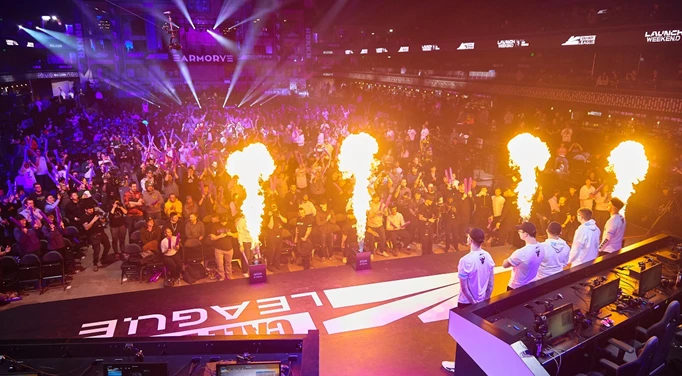
 Click to enlarge
Click to enlargeWell, first things first, the precedent to leave the Call of Duty League is there in writing. So yes, the CDL can be dissolved. It's not quite as simple as just saying "Yep, lets leave," but if teams followed similar steps to the OWL sides, then there's certainly a path for discussions to take place and get the ball rolling - if it's already not.
However, one major blockage in the road is the Call of Duty League's deal with YouTube for broadcasting rights.
If the writing is really on the wall for the franchised league, as to when it dissolves will likely also coincide with when the new YouTube deal ends, as Activision and Microsoft might be rather reluctant to pay back even more money as a result of the CDL's capitulation.
At this current moment, it's not known how long the new YouTube deal is signed for, although the wording in Activision's statement ("The 2023-2024 CDL™ season will be broadcast in 4K on YouTube Gaming") insinuates that it could be a one-year partnership.
The Call of Duty League is not going anywhere mid-season, although this could be the last year of franchising, if not the penultimate.
Well, that's enough ifs, buts, and maybes. If the CDL had wheels it would be a bike and all that jazz. Let's move on.
Who takes control of Call of Duty esports?

 Click to enlarge
Click to enlargeIf the Call of Duty League did dissolve, it's worth considering who will then start the new age of CoD esports.
Activision has recently downscaled its esports team in recent layoffs, and has recently cut back on how many events they have sole control over in the CDL, allowing individual teams to host LANs and do the main bulk of lifting in terms of production.
This doesn't mean that they could run a whole league though, and will need the direction of another tournament organiser as an impartial rule dictator and independent format decider.
The World Series of Warzone Global LAN finals in London was fully operated by Esports Engine, a third-party company, which could imply that the CDL is more than prepared to begin leaning more heavily on other companies for how the league.
As to which company would fancy taking on a brand-new Call of Duty esports format and production, well, that's a trickier minefield to digest, with MLG's staff now being laid off, Esports Engine and DreamhHack being predominantly European, and few other TOs in the United States having previously shown interest in CoD.
Maybe there's a way back to CWL Birmingham and Sheffield... Or not.
Possible non-CDL formats
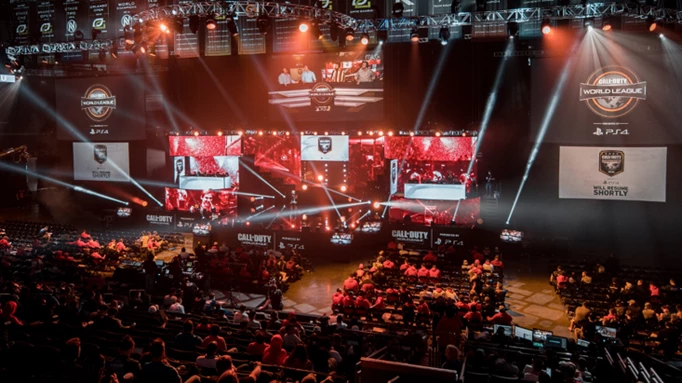
 Click to enlarge
Click to enlargeHere's where we start painting a picture of what Call of Duty esports could look like in the future, while there might be fewer inputs from developers, resulting in a wider gap between the esports scene and the casual community and battle royale fans, it would be healthier for the pre-existing pool of talent.
First off, without franchising, there is absolutely no need for a major division between the top twelve teams and those in the current Challengers scene. Instead, holy pool play.
It's possible that Microsoft could eye a Partnership scheme with the iconic Call of Duty brands which would offer organisations incentives to compete and be involved, similar to how the Halo Championship Series works.
Then, the non-partnered teams compete in open qualifiers for Majors, where it's a good old scrum of fixtures out of the pools and into the main events. Proper Call of Duty. A graft, and no freebies.
This would be much healthier for the progression ladder at the moment, given players' vocalised nepotism claims, where teams have favoured safer brand-pleasing players over upcoming and unproven youngsters.
Alternatively, it could simply be every man and woman for themselves, and the entire league structure could be open for qualifiers through the new FaceIt programme, more like a blast from the past when teams had to qualify for events through the GameBattles site.
More likely, it would be the first, option, which would make for a very tasty opening season under the lights as the "friendly" spots in the franchised league would be pitted against these hungry Challengers players.
Would dissolving the CDL in 2024 fix Call of Duty esports?
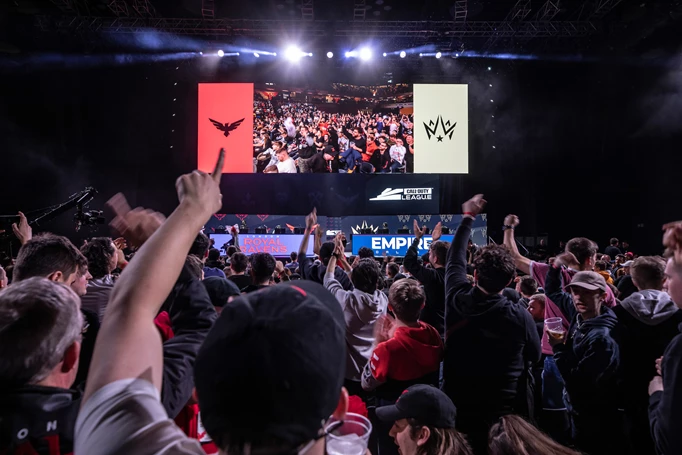
 Click to enlarge
Click to enlargeUltimately, dissolving the CDL might be just what's needed to renew Call of Duty esports.
It will likely leave CoD esports in a rather unhealthy financial status, and put a long off-season into motion as TO deals and sponsorships are ironed out, but after so much turbulence over the last four year, what's one more winter?
Instead, Call of Duty could get back to what makes Call of Duty so great: smack-talking underdogs in pool play, partnership incentives, and just straight-up shoot-outs.
If the CDL ship is sinking, it would be better to hit the dingies, as a new shore would prove more fruitful than clinging onto the rusted treasures we have amassed on this venture.